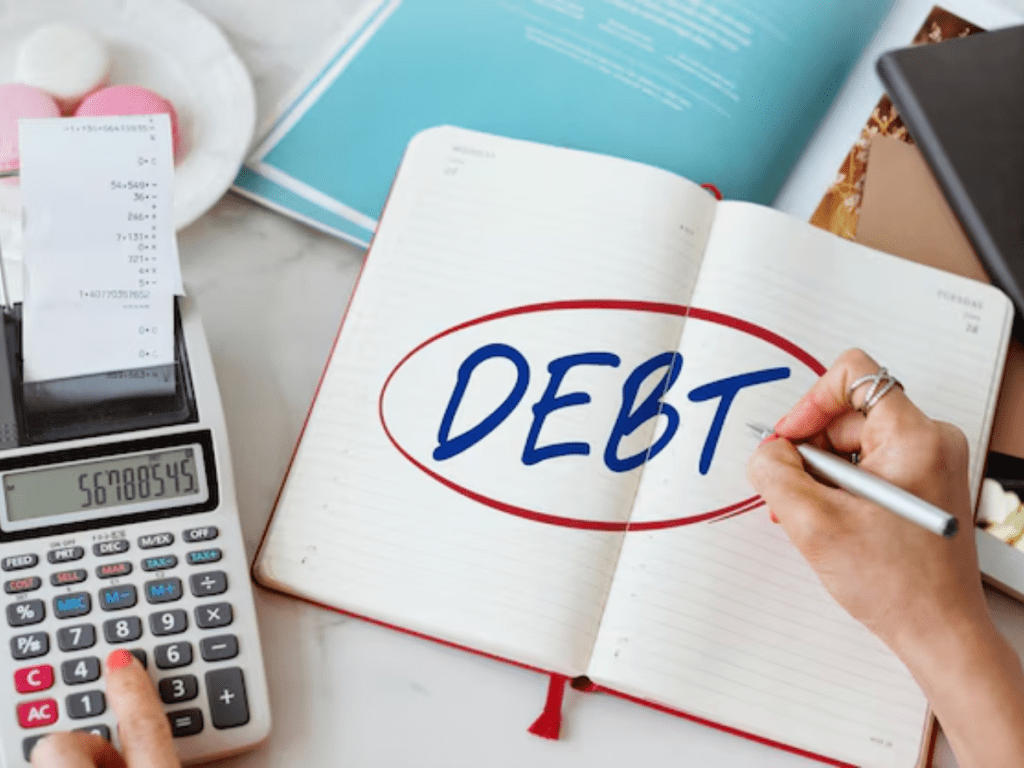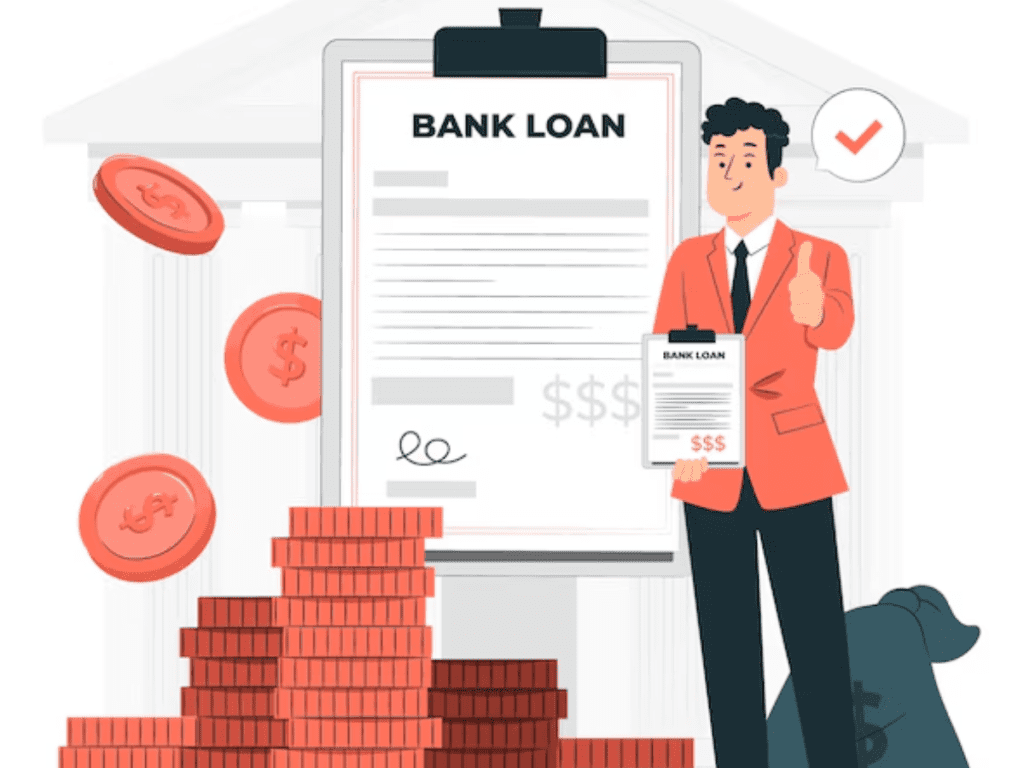Introduction
A loan is a frequent mechanism through which individuals and companies obtain financing for significant acquisitions or emergency expenses. Whether a mortgage, student loan, car loan, or personal loan, borrowing offers the opportunity to obtain current needs while paying over time. But there are instances when lenders are in need of money and cannot make repayments on time. This might result in a loan default, which will have long-lasting effects that impact all areas of your financial status and well-being.
Loan default is when the borrower fails to make the repayment as stipulated in the agreement. Loan default can result due to a wide range of issues, including being laid off work, having high unforeseen medical bills, or having poor finances. Regardless of the reason behind it, loan default is serious and needs addressing as soon as possible.
Here, we will look at what happens when you are unable to pay back a loan, the consequences of defaulting on a loan, and what you can do to limit the damage and even recover from this financial loss.
What is Loan Default?
Loan default is when a borrower doesn’t make payments on their loan as agreed upon in the loan contract. The loan default definition may differ based on the lender and type of loan. A loan, in most instances, is in default after a specified number of days of non-payment, which could be 90 to 180 days. The loan default timeline, however, may differ for different loan types. For instance, credit cards might default following multiple payments that have been missed, whereas mortgages or automobile loans can default after missing only a few payments.
There are some loans, for instance, student loans, with certain federal laws that govern the default procedure. Federal student loans, for instance, can default after 270 days of missed payments. Irrespective of the loan type, though, defaulting on any loan will have lasting implications.
Key Consequences of Loan Default
Defaulting on a loan is not a trivial financial inconvenience. The implications of loan default can have an impact on your credit, your future access to loans, and your general financial health. Below are the primary consequences of loan default:
1. Significant Damage to Your Credit Score
Perhaps the most direct and obvious consequence of loan default is harm to your credit score. It is a numerical value that reflects your creditworthiness, and it is the key to determining if you will be able to obtain future loans, credit cards, or even rent a house. Financial institutions, landlords, and lenders all count on your credit score to gauge your reliability when it comes to money.
When you are in default on a loan, the lender will send the default to the three major credit bureaus—Experian, Equifax, and TransUnion. This will tend to result in a substantial decrease in your credit score, usually by 100 points or more, depending on how severe the default and your prior credit history. The newer the default and the higher the outstanding balance, the larger the hit to your credit score.
A lower credit score will make it harder to get new credit. When you can get new loans or credit cards, you will be charged significantly higher interest rates, making it more costly to borrow. Additionally, a low credit score can prevent you from renting a house or getting employment in some sectors that conduct background checks on credit scores.
2. Aggressive Collection Efforts
If you fail to pay a loan, the lender will resort to intensive collection efforts to collect the delinquent debt. The lender will usually begin by sending reminders, late payment notices, and collection letters. If payments are not made, they might refer your account to a debt collection agency.
Debt collectors are often persistent and will contact you via phone, email, or physical mail. They may even attempt to visit your home or workplace in some cases. Debt collectors have the right to pursue payment for the debt, but there are rules in place to protect consumers from harassment or abusive practices. For example, they are not allowed to contact you outside of certain hours, nor can they threaten or intimidate you.
If the collection process persists without settlement, collectors can sue to collect the debt, which can result in court judgments and additional financial penalties.
3. Possible Lawsuits and Legal Action
If collection efforts are unsuccessful, you may find that lenders or debt collectors resort to taking legal action against you in the form of a lawsuit. Should you lose the lawsuit, the lender can obtain a court judgment against you. A court judgment entitles the lender to pursue further action to recover the outstanding debt.
For example, a lender might request a wage garnishment, in which a percentage of your pay is taken automatically by your employer and delivered to the lender. Or the lender might impose a bank levy, which permits them to withdraw funds directly from your bank account. In extreme cases, a lender might even attach a lien to your property, which can lead to the forced sale of your assets to pay off the debt.
The legal process involved in a loan default can be costly, both in terms of legal fees and court costs, and can put a huge burden on your finances.
4. Repossessions and Foreclosures
For some loans, like auto loans and mortgages, defaulting on the loan can lead to the repossession or foreclosure of your property. If you miss payments on an auto loan, the lender will repossess the vehicle. This is when they take the car back and sell it to get back the loan balance due. Repossession can occur fairly quickly—sometimes after a few missed payments.
Likewise, if you fall behind on a mortgage, the lender can legally initiate foreclosure, a court procedure that enables them to seize your home. The lender will then sell the property to collect the outstanding balance of the mortgage loan. Foreclosure can take a long time and can result in the loss of your home permanently.
Both repossession and foreclosure may inflict permanent credit score damage and result in losing assets of worth that are challenging or impossible to recover.
5. Increased Debt Due to Penalties and Interest
When you default on a loan, additional fees and charges may be added to the amount you owe. Many lenders charge late payment penalties, which are fees added to the loan balance for missed or delayed payments. These penalties can vary depending on the type of loan and the lender’s policies but can add significant costs to your overall debt.
Moreover, your loan can have its interest rate raised by the lender in case of defaulting, such that the interest amount owed by you increases at a faster pace. Consequently, the total owed can swell in no time, making it difficult to recover payments and result in a perpetual cycle of debt.
6. Trouble Getting Loans in the Future
After defaulting on a loan and having your credit score lowered, it becomes that much harder to get credit in the future. Lenders and banks consider defaults on loans to be a risk, making it more challenging for you to get new loans, credit cards, or lines of credit.
In cases where you can get credit, you might be charged higher interest rates, tougher terms, and poorer conditions. This can increase the cost of borrowing even further, increasing your long-term financial load. If you are seeking a mortgage, car loan, or personal loan, a previous default can sharply reduce your likelihood of approval.
7. Bankruptcy as a Last Resort
In the worst situations, default on a loan can result in having to file for bankruptcy. Bankruptcy is a legal procedure intended to assist individuals and companies in eliminating or restructuring their debts. Although bankruptcy temporarily halts collection activities, such as lawsuits, wage garnishment, and foreclosure, it has serious repercussions.
Bankruptcy can remain on your credit report for as long as 10 years, and this can really hurt your chances of qualifying for credit in the future. Furthermore, bankruptcy can lead to the sale of some assets, such as property, savings, and other items of value. Bankruptcy must be a last resort after exhausting all other possibilities.
How to Avoid Loan Default
Though default on a loan is a serious matter, there are things you can do to prevent yourself from becoming a defaulter:
- Communicate in Advance with Your Lender: If you are having trouble making payments on your loan, get in touch with your lender immediately. Most lenders have hardship programs or can accommodate you by adjusting the terms of your loan, stretching out the payment period, or granting a temporary suspension of payments.
- Establish a Realistic Budget: Budgeting is essential when dealing with debt. Knowing your monthly income and expenses can help you decide how to pay off loans and not fall behind.
- Refinance or Consolidate Loans: If you have several loans, refinancing or combining them into a single loan with a lower interest rate can make it easier to make payments and keep up.
- Get Professional Assistance: In case you feel overwhelmed by debts and are at the verge of defaulting, you may think of contacting a financial advisor or credit counseling organization. They can assist you in formulating a debt management plan and offering insightful advice on how to manage your finances.
- Consider Debt Settlement: In certain situations, lenders might agree to accept a lower payment to settle a debt. Debt settlement can be an option if you are unable to pay the entire loan amount, but it can also negatively affect your credit score.
Conclusion
Default on a loan is a severe financial problem with long-term ramifications. From tainted credit ratings and lawsuits to losing property and finding it hard to obtain future loans, the consequences of default are far-reaching. It is imperative to know what risks are at stake and to take proactive measures to prevent yourself from falling behind on your loan payments.
If you are already in default, it is worth taking action right away to fix the situation. Contact your lender, discuss repayment options, and have financial experts assist you to regain control over your finances. Taking a proactive and informed approach will allow you to contain the negative effects of loan default and continue toward a more secure financial future.

